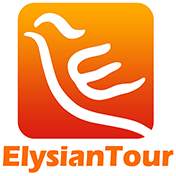7 Common Tourist Scams in China
Nothing ruins a travel experience faster than getting scammed or ripped off in a foreign country. In China, like any other Asian countries, travelers are at high risk of being caught by multifarious tourist traps varying from taxis, shopping, cheap tours, fake goods, etc. To achieve a safe China trip, you could read on the following major types of tourist scams and learn about the tips to avoid them, especially for solo and independent travelers.
Black taxi in China is not really cars in the color of the black but refers to those illegal taxis that usually overcharge passengers, especially foreign travelers who are unfamiliar with the routes. The drivers are pros at finding means to overcharge you by detouring or offering a super expensive flat rate (commonly seen at airports and train stations).
Even choosing a legit taxi, sometimes you would be scammed if you forget to reach an agreement on the price or to ask using meters. The driver might ask for ridiculous price after arrival. The worse situation is that some crooks even drop you off at wrong places and vanish with your luggage.
Tips:
- You shall always grab a licensed taxi with a proper sign to lower the risk of getting trapped by the drivers.
- Stay away from those drivers of private cars who wave you to get on their cars at airport and railway stations.
- You shall make an agreement on a flat price or request using meters before you hopping on the taxi.
- Make sure the driver delivers you to the right place that you want to go.
This is a very popular and long-running scam especially in bustling tourist places like Wangfujing Street in Beijing and Nanjing Road in Shanghai. Foreigners might be approached by a stranger, most likely a harmless-looking young lady who wants to practice her English and then invites you to a tea house for a tea ceremony. When the sky-price bill finally comes to you, you may find your new friends never come back after a request of going to the restroom, and the teahouse owner will not let you leave until you pay.
Tips:
- To avoid such scam, you should always be vary of the strangers who approach to you. And if they suggest to go for a drink or a dinner, propose to go somewhere you know that test their real purpose.
- Besides, you shall ask the price before ordering any drinks or foods.
- Usually solo male travelers are the suckers of this kind of traps, so be more cautious while traveling solo.
Chinese tourism market is inundated with a lot of cheap tours, and the notorious Great Wall Tours in Beijing is one of them. Cheap price always comes with low and even terrible tour quality.
You might need to stand up with dirty and overcrowded bus, low-grade foods and accommodations, and even worse the endless shopping stops. What you are blind about is that these super cheap tours benefit from the commissions of the shops that sells something like traditional Chinese herb medicine, antiques, jade wares or a lame performance. The guides are sly at tricking you into paying more than what they are really worth. Far from downtown area, you have no way going back if refusing to buy something.
A more horrible scam of cheap tour is that you might be taken to an artificial site copied from the real one (like the fake Terracotta Army Museum in Xian). With costly admission ticket, these man-made fake attractions are utterly worthless for a glance but a waste of time.
Tips:
- Never jump to a tour of low price that cannot even cover the cost of the transportation, accommodation or the entry ticket.
- Stay away from the tour operators canvassing customers at the railway stations or bus stops.
- Prebooked tours with a legitimate and licensed local travel agency is recommended for a wonderful experience. You can customize every step of your trip in China, and the guide will only take you to local and reliable shops if you want to select some special souvenirs or handicrafts.
Receiving counterfeit money is as worse as buying fake goods. Nowadays, there are still a lot of counterfeit notes especially ¥50 and ¥100 bills circulating in the markets of China. Since cashless payment via WeChat Pay and Alipay are prevalent in China, foreigners are more likely to become the targets of fake money traps when taking a taxi or shopping in poorly-established vendors.
The scam may also works like this: you make payment with your genuine 100 Yuan, but the receiver swap it secretly with a fake note in the blink of an eye, and then claim the note you offered is counterfeit. Or when you are involved in some activities that need deposit fees, you may be refunded with fake money.
Tips:
- You should always keep an eye on your bill when paying in case it gets swapped.
- Never try to get or exchange cash from strangers. You can get money from ATMs or exchange money in the banks.
- Carefully inspect larger bills you receive. If it's hard for you to detect its genuineness or you feel skeptical of the note, you could request for another one.
This is similar to the tea ceremony scam. Disguised art students may come to you on the streets and gain your trust by their innocent looking. Usually, you would be offered a chance to walk into an art studio or gallery with free exhibitions. Once you are there, they will make every possible effort to push you to pay for an overpriced art-viewing fee or buy their traditional Chinese ink painting or calligraphy works at grossly inflated prices. Actually those are just cheap art that you could find in any street market.
Tips:
- Never lower your guard down for any street tout or hawkers or those claiming they are art students.
- Never go with strangers to places recommended by them.
- Go shopping at some well-established shops, and always ask for the price first.
- Once you sense they are going to sell something, just leave.
Not just for foreigners, Chinese tourists are also at a risk of getting ripped off when shopping during the journey. There are three major traps you might encounter, including fake goods, overpriced stuff and forced shopping. In touristy markets especially for the curios, rare herbs, jades, silk and pearls, buyers might get conned by paying with sky price but getting a fake article.
Alternatively, many owners of souvenir shops offer visitors an outrageous price with a discount. The last also the worst trap is that you are led to shops and forced to buy something you actually do not want to by the tour guides who get a commission off the sale. This usually happens when you go with a super cheap tour.
Tips:
- Without an expert guide, you shall avoid purchasing costly antiques, curios, paintings and jewelry.
- It is wiser to stick to larger shopping malls and traditional retail outlets with clear price quotations.
- Barging is a very common skill to cut down the inflate price to get a reasonable rate. So bargain hard at markets.
- Say no to cheap tours which reap a profit from shopping, and it is more reliable to choose a no-shopping tour operator.
This is not really a tourist scam. You have a large chance to meet different kinds of beggars for money in China, especially in tourist areas. When you take the subway, cross an overpass or wander about the streets, people dressed in rags, in particular seniors, would approach to you for money. Sometimes, you may come across disabled beggars or single mom with baby lying down on the ground with signs explaining their situation. Most people are inclined to give money in this case, and something as little as 5 Yuan could be appreciated by them.
Tips:
- If some beggars grab your shirt and ask for money, you could just walk away.
- Giving or not giving is a choice up to you. If the miseries of the disabled and baby beggars reach into your soul, 5-10 yuan is enough for the donation.









